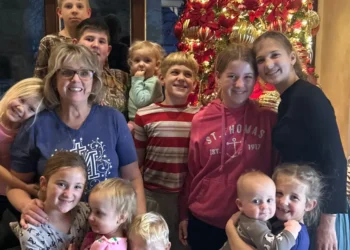When I was laid off for the first time at age 40 after decades in corporate America, I didn’t just lose a paycheck, I lost a piece of myself. To cope, I did something counterintuitive: I kept a ledger of my shortcomings in the Notes app on my phone.
I called it a “fail resume,” printed it on ivory linen paper and slipped it into a manila folder marked “CONFIDENTIAL.” Inside were the ruins of my ambition: the layoff memo, my divorce papers, the records of years of IVF that didn’t work. I revisited this digital reliquary of almosts and not-quites like I was running my finger over an old scar. While every artifact stung, the hardest was coping with the fear that losing my job, and therefore my livelihood, would lead to an avalanche of even more failures.
Lately, the acute fear (and reality) of job loss is dominating the American narrative. A grim jobs report, over 4,000 layoffs during the government shutdown, and an AI-fueled hiring process have turned job loss into a national preoccupation. People lucky enough to still be collecting a reliable paycheck are “job hugging,” or holding onto their jobs for dear life, according to a recent report.
The authors of the New York Times best-selling book “Difficult Conversations” famously reported that when your personal identity is heavily tied to your job, losing that job, even if it is through no fault of your own — such as in an economic downturn or restructuring — can seem catastrophic, causing an existential crisis called an “identity quake.”
Even so, we’ve been taught to bury feelings around job loss, or reframe them as “learning.” Maybe this is because the modern psyche is shaped less by internal satisfaction and more by external benchmarking. A Journal of Happiness Studies article this year revealed that life satisfaction is increasingly shaped by relative positioning rather than absolute well-being. People aren’t asking “Am I fulfilled?” but “Am I ahead?”
When I was laid off, I felt like the broken shards of the American dream suddenly littered my desk. The core promise of this country, for a Midwestern girl who came of age in the 1990s, was that hard work would be rewarded. Any form of failure was not only personal, but a societal betrayal.
The intrinsic irony felt bad, too: Feeling like a failure would only make it that much harder for me to present well in an interview, but if I ignored my mistakes I’d lose the scaffolding of resilience, the messy data of lived experience. Why doesn’t our culture give each of us permission to be unfinished and a work in progress?
My fail resume became an act of civil disobedience against toxic optimism. Inking it was defiance and a reckoning with my shadow self — the version sculpted not by triumph, but by the resounding echoes of no.
When I was writing it, I didn’t dwell on my accomplishments with doe-eyed optimism, but rather embraced what it meant to keep walking when the intended path disappeared beneath my feet.
I’m not the first person to embrace this idea. “What did you guys fail at this week?” is a question that Sara Blakely, the billionaire founder of Spanx, regularly heard at the dinner table. She credits her success to growing up in a family where failures were discussed as an acceptable and inevitable part of life. Before founding her company, she sold fax machines door-to-door — facing rejection daily.
My childhood was drastically different, yet it led me down a similar path. Second place wasn’t accepted in my family, as my parents absorbed and passed along an emerging national ethos in the 1990s to seek accomplishments above most else. We lived by a diligent work ethic and the need to win at … everything. Failure was only something to be learned from if we had first done everything to avoid placing second in JV basketball or forgetting our lines on stage during the high school production of “Grease.”
In my adulthood, though, as an amateur poker player, I know that losing a hand isn’t failure, it’s tuition.
But does failure automatically teach us how to be successful? No. The Journal of Experimental Psychology states that believing failure sets up success can dampen motivation and skew how we perceive resilience. Instead, studies show that awareness of realistic outcomes, paired with encouragement for proactive reflection and support, fosters genuine progress.
But at the moment when I lost my job, resilience was nothing more than corporate virtue signaling to me, a buzzword, a reason to stay on the hamster wheel. Living in stillness with my shortcomings, without trying to immediately fix them in service of learning lessons, let me finally stop trying to metabolize pain into productivity.
It led to a kind of organic endurance: an ability to navigate setbacks without panic or shame because I knew how to sit with them. I understood that loss, when named and honored, became less a weight and more a window — a way to see how far I’d wandered from the intended path, and how much of myself I gathered along the way.
The fail resume became my own archive of small personal recessions that mirrored challenges we’re all living through. That freedom helped me let go of decades of aspiring to highly specific outcomes and gave me the permission to be unfinished, messy and fundamentally human.
With that freedom, I explored how I really wanted to spend my time. It turns out I wanted a lot of things other than a steady job. And also, I ultimately joined a large corporation to continue my marketing career in the most traditional sense.
Resilience was the story I told other people. Failure was the one I finally lived.
Andrea Javor is a Chicago-based freelance writer and marketing executive working on her memoir about poker and love.
The post How cataloging my failures got me through a crisis appeared first on Los Angeles Times.




